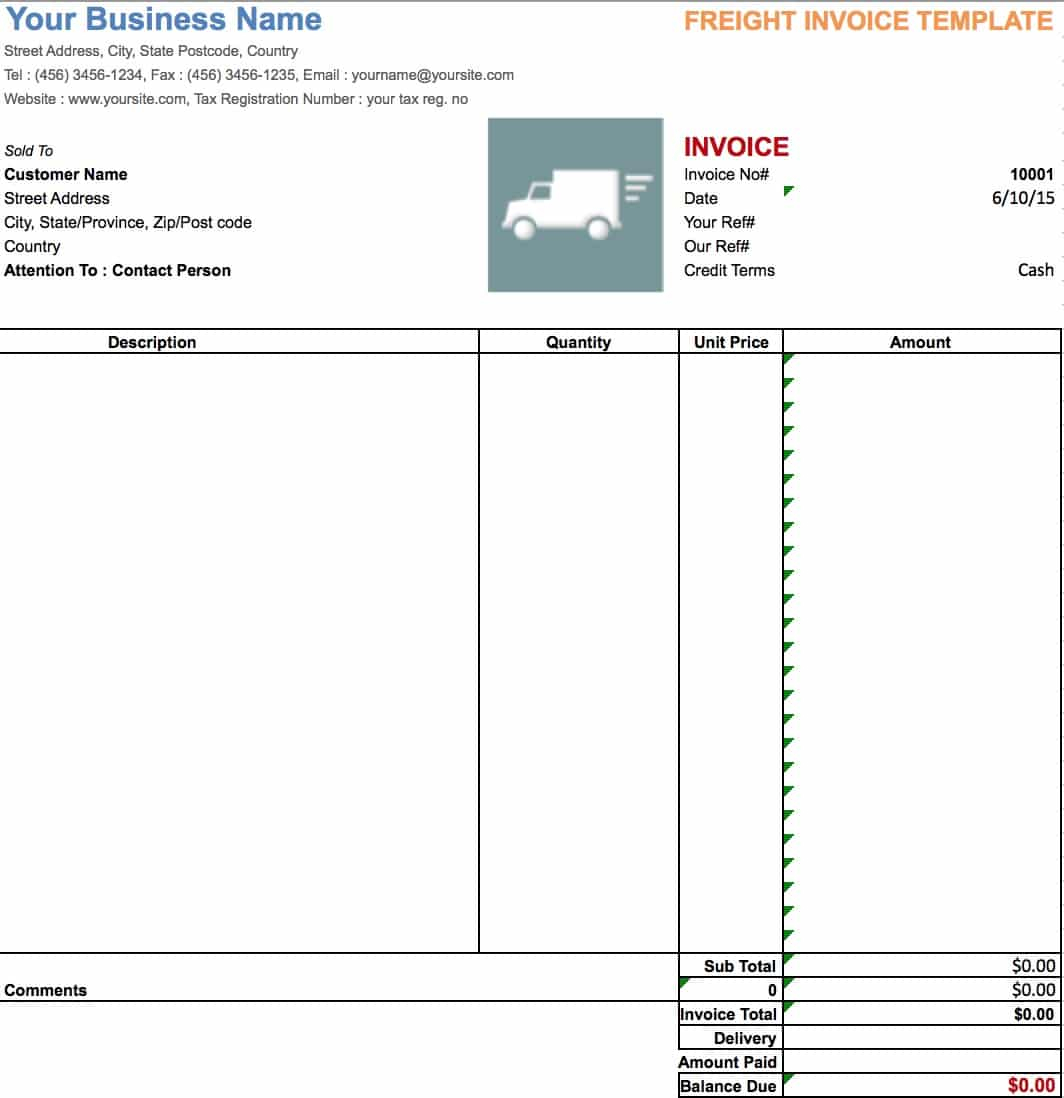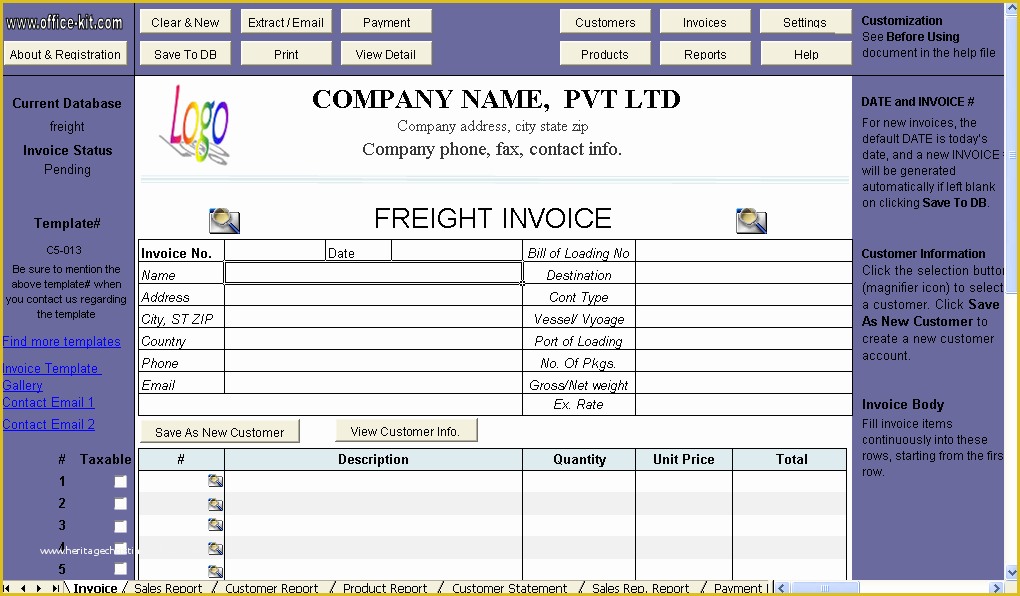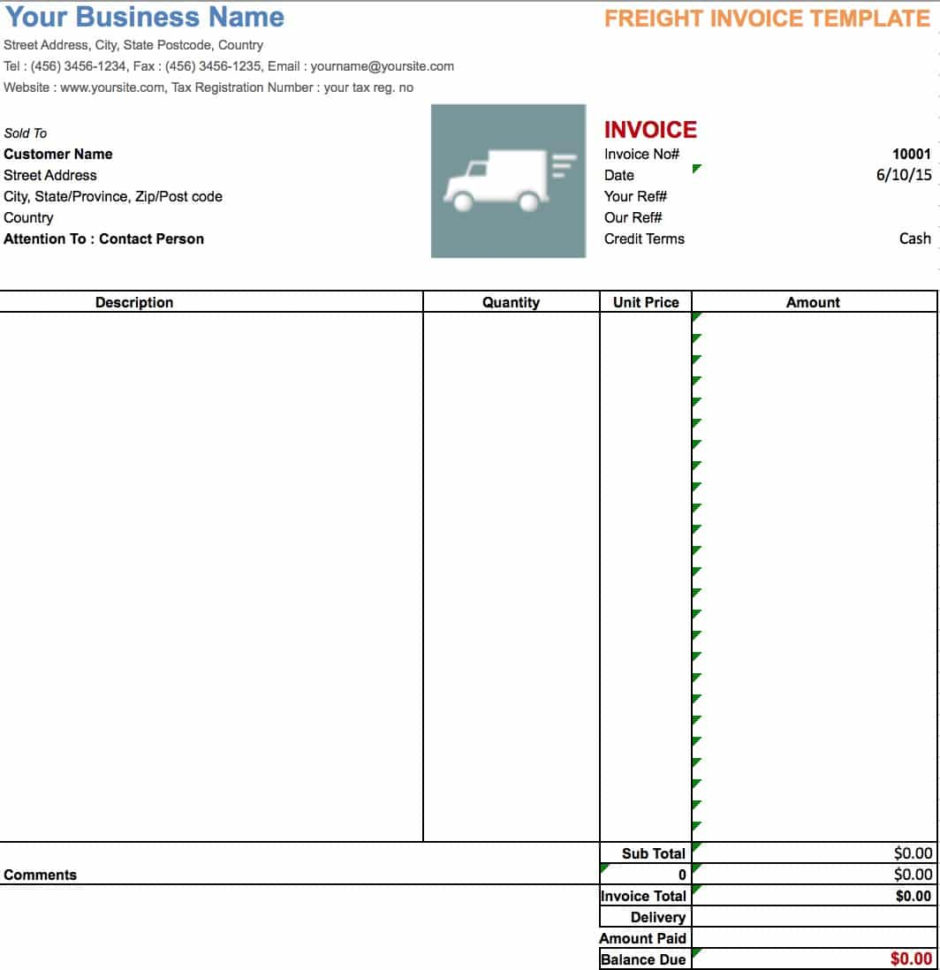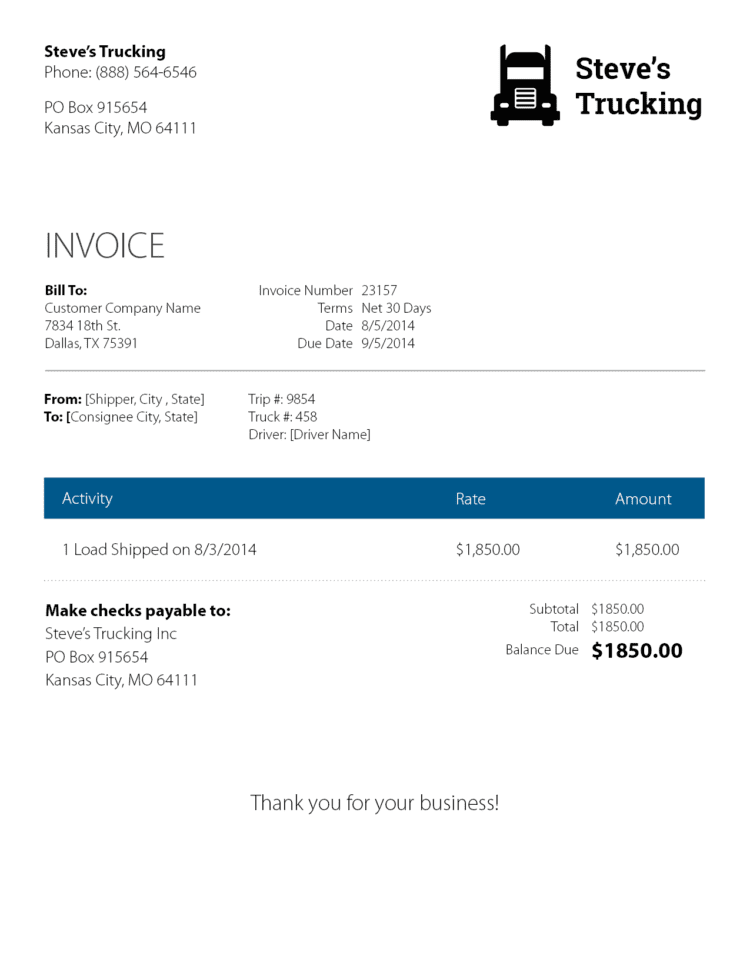

These charges may vary depending on the freight mode, such as full truckloads (FTL), partial truckloads (PTL), and less-than-truckloads (LTL).

This data is not the be confused with the invoice due date.

Trucking Company Details – The next item on the invoice typically includes the carrier’s details (payee), which include the company name, address, and contact information.Customer Details – Every trucking invoice contains information about the shipper or consignee (payer), including the company name, address, and contact details.While every carrier has its preferences on what information an invoice should contain, you’ll find a general list of the most common information below. You can find a variety of invoice formats in the market. What Type of Information Do Trucking Invoices Contain?

These invoices are typically raised by a trucking company or an owner-operator and serve as a request for payment, containing all relevant information required for the process, including the shipper and consignee details, load type and details, freight charges, accessorial charges, and payment terms, among various others.įor all parties involved, trucking invoices serve as an effective tool to track expenses, resolve disputes, and ensure compliance. What Is A Trucking Invoice?Ī trucking invoice is a financial document that trucking companies and owner-operators use to outline the charges associated with transporting goods for shippers and receivers. These essential financial documents outline every charge in detail to ensure shippers and receivers know what they’re paying for when transporting their goods.īy gaining a deeper understanding of trucking invoices, they can better manage their expenses and prevent or resolve billing disputes. In this article, we’ll explain everything you need to know about trucking invoices and what charges they contain. In many cases, the lack of trucking industry knowledge can lead to disputes, especially when shippers or receivers incur freight charges that exceed their expectations.Īs a result, understanding trucking invoices have become more crucial than ever. Some shippers, though experienced and knowledgeable in their respective industries, may lack a comprehensive understanding of the complexities involved in freight transportation.


 0 kommentar(er)
0 kommentar(er)
